Department of Information Technology
Head of the Department: Smt. DANTURTHI SUSMITA
| Designation | SENIOR LECTURER (HOD) in Information Technology |
| Qualification | MCA |
| Experience | 27 years |
| Contact No | 9583859903 |
| susdanturthi@gmail.com |
Department Overview:
The Information Technology (IT) Branch at Bhubanananda College of Engineering had been established since the year 2000 and is a specialized academic department focused on providing students with the technical knowledge and practical skills required in the field of information technology. This branch offers a Diploma in Information Technology (DIT) which equips students with foundational and advanced concepts in computing, networking, programming, software development, and digital technologies.
Key Aspects Covered:
- Curriculum and Specializations:
- The curriculum is designed to provide a balance between theoretical knowledge and hands-on experience. Topics commonly covered include:
- Computer Programming: Languages such as C, C++, Java, Python, and more.
- Database Management: Relational databases, SQL, and data management tools.
- Networking: Concepts of computer networks, internet protocols, and network administration.
- Operating Systems: Understanding various operating systems like Windows, Linux, and macOS.
- Software Engineering: Concepts of software development, design patterns, and project management.
- Web Development: Front-end and back-end technologies, HTML, CSS, JavaScript, and server-side scripting.
- Cybersecurity: Basics of securing networks, systems, and data.
- The curriculum is designed to provide a balance between theoretical knowledge and hands-on experience. Topics commonly covered include:
The program may also offer specializations in areas like cloud computing, mobile app development, and IT project management.
- Skills Development: The IT branch emphasizes both technical and soft skills development:
- Technical Skills: Students learn how to write code, troubleshoot hardware and software problems, design networks, and develop applications.
- Problem-Solving: Courses focus on logical thinking, debugging, and creating efficient algorithms.
- Teamwork and Communication: Group projects and presentations help students improve their collaboration and communication skills, which are critical in the workplace.
- Industry-Relevant Skills: Exposure to current technologies such as IoT, Big Data, and cloud platforms.
- Practical Experience:
- Laboratories: The IT department is typically equipped with modern computer labs where students work on real-world projects and simulations.
- Internships: Many diploma colleges partner with tech companies, offering students the opportunity to intern and gain hands-on industry experience.
- Workshops and Seminars: Guest lectures and workshops by industry professionals allow students to stay updated with the latest trends in technology.
- Industry Integration: The IT branch often has collaborations with tech companies, giving students access to resources such as certifications, job placements, and cutting-edge technology. These partnerships enhance the relevance of the program and increase the employability of its graduates.
- Future Prospects: With the growing reliance on technology across all industries, the demand for IT professionals continues to rise. The IT branch prepares students not just for entry-level positions, but also for further academic pursuits in IT, including bachelor’s degrees and certifications in specialized areas of technology.
Vision:
To equip our students with productive technical skills in the Information Technology area and effective interpersonal skills to facilitate the process of increasing their employability.
Missions:
- M1: Enabling development of analytical skills, software design know-how, implementation proficiency and testing competency related to Information technology arena.
- M2: Facilitating professional efficiency, positive attitude, communication skills, team spirit, and entrepreneurial capabilities in response to the latest trends in Information technology arena
- M3: To prepare the students for admission into B.Tech Courses or successful employment in industry / business or creating self-employment options.
Program Educational Objectives (PEOs):
- PEO1: Provide socially, academically and commercially utilitarian, empowering and functional software solutions for solving various social, academic, governmental, commercial and enterprise related problems
- PEO2: Apply modern-day Information technology related concepts, techniques and technologies while developing cutting-edge software solutions.
- PEO3: Resolve problems individually as well as while being part of a team by communicating effectively and adapting professional ethics at work-projects.
Program Outcomes (POs):
- PO1: Basic and Discipline specific knowledge: Apply knowledge of basic mathematics, science and engineering fundamentals and engineering specialization to solve the engineering problems.
- PO2: Problem analysis: Identify problems and analyze software requirements using well-defined software standards
- PO3: Design/ development of solutions: Effective planning to create prototypes and then use the results to create effective software solutions
- PO4: Engineering Tools, Experimentation and Testing: Apply relevant Information Technology concepts, techniques and tools with an understanding of the limitations to conduct standard verifications and validations
- PO5: Engineering practices for society, sustainability and environment: Apply appropriate Information technology concepts for societal upliftment, enhancing sustainability, environment betterment and ethical practices
- PO6: Project Management:Function effectively in individual capacity as well as a team member in multidisciplinary team, communicate effectively in oral and written form as well as comply with ethical principles
- PO7: Life-long learning: Ability to analyse individual needs and engage in updating in the context of technological changes
Program Specific Outcomes (PSOs):
- PSO1: Acquire software knowledge and implement them to create effective software solutions
- PSO2: Apply acquired skills in software development, software maintenance, software testing, network management and application security.
Laboratories of Information Technology:
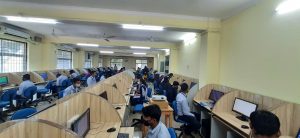
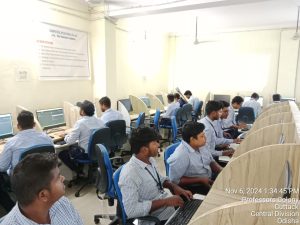
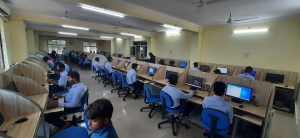
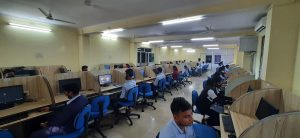
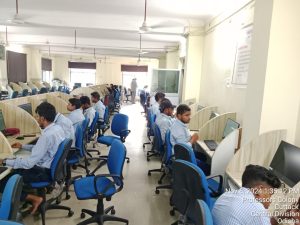
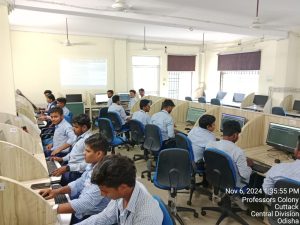
Workshops/Seminars of Information Technology:





Time Tables of Information Technology:
Faculties of Information Technology
|
|
|
|
|
Faculty wise Lesson Plans of Information Technology
Name of the Faculty: Smt. DANTURTHI SUSMITA
Subject:Data Structure, Database Management System
Name of the Faculty: Ms. SUPRIYA MISHRA
Subject:Entrepreneurship & Management, Computer Graphics, Computer network, Computer System Architecture
Name of the Faculty: Smt. BISWA BANDITA MOHANTY
Subject:JAVA
Faculty wise Lecture Notes of Information Technology
Faculty wise Video Lectures of Information Technology
Staffs of Information Technology

|
|








